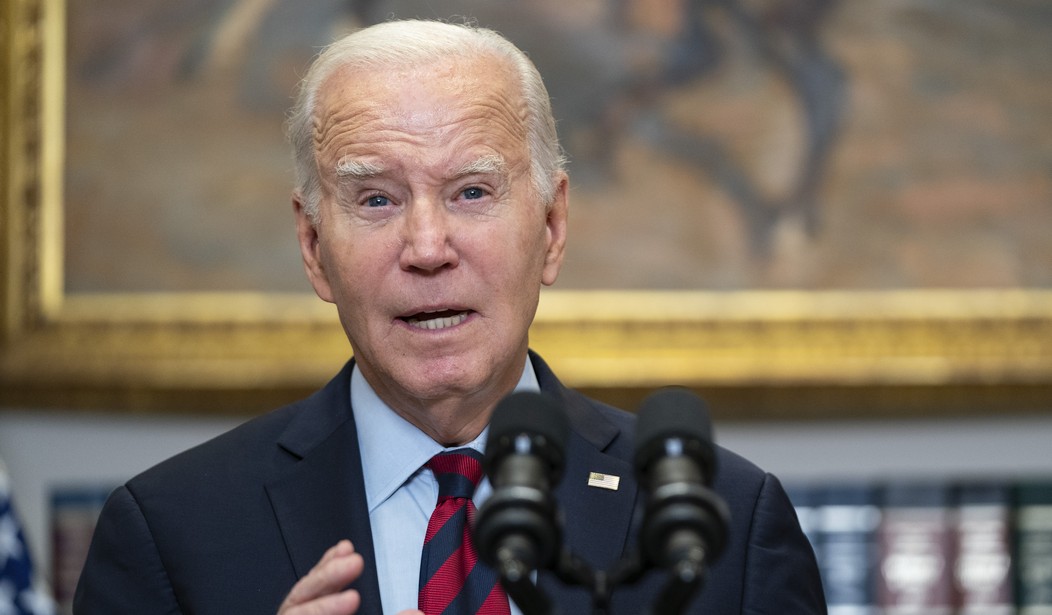Over the years, I've offered many explanations about why the trajectory of the national debt is deeply troubling. At this point, though, my worry isn't rooted in a dogmatic adherence to the principles of a balanced budget. Nor does it come from my desire for a smaller government. Instead, I'm alarmed by politicians' unwillingness to look at the numbers and seriously discuss changing course.
When I started paying close attention, the U.S. essentially carried a credit-card balance of 40% of America's GDP. Today, according to the Congressional Budget Office, that balance hovers around 98%. Imagine credit card debt equal to your yearly salary, interest costs piling up, and more inevitable debt coming your way. Congress doesn't seem to mind, which partly explains why even optimistic scenarios project the debt to soar to a staggering 180% within 30 years.
Many politicians would rather pretend there's nothing to fear, that the U.S. is such a powerhouse that there will always be people paying our bills. But even for a financial powerhouse of sorts, this reality raises questions about the kind of future we want to leave for the next generation. Further down the path we are on lies a point where interest payments alone consume such a large portion of the budget that the government will be unable to fund essential programs and respond to unforeseen crises. We also risk inflation skyrocketing again, which makes the debt-to-GDP look more sustainable on paper as it worsens Americans' standard of living. We also face the prospect of tax increases at a time when economic growth is slowing down.
Recommended
Still, some would have us believe these are mere theoretical possibilities. That perspective requires real imagination. The retirement of 75 million baby boomers is not a speculative event. Their exploding healthcare cost is also a reality happening now, and the obligation is set in law. As a result, the government's deficits are ballooning, adding to our debt and interest costs. Even if interest rates remain low, deficits are undermining the very foundation of our fiscal stability. In 2021, the Manhattan Institute's Brian Riedl wrote a comprehensive report warning of the folly of assuming interest rates will remain indefinitely low. Higher rates have validated his concerns, further straining the budget.
CBO scenarios, in which the government never pays more than 4.4% interest rates for the next 30 years, seem increasingly pollyannaish. Rates above and beyond that are likely, and even a single percentage point will add trillions to the debt over the next few decades.
The pushback against what you've just read often comes from those who believe interest rates can remain perpetually low. That belief was the foundation of the fashionable but short-lived theory of "R versus G" -- the relationship between real financing costs and economic growth. According to this theory, if economic growth ("G") outpaces the debt's financing costs ("R"), there's little to worry about. Unfortunately, as we've seen in the last few years, things fall apart as soon as R goes up.
The main mistake behind the R-G theory has been believing that because interest rates had been declining and relatively low for years, they would always stay low. Many of these people also believed that inflation was somehow defeated because we'd had no real inflation since the 1980s.
Consider politicians' propensity for wishful economic thinking when, for example, someone argues that we can handle a debt-to-GDP ratio of 200-300% like Japan does. Japan is not a model we should emulate. Relative to America, Japan is poor and its economy stagnant, the victim of decades of slow economic and wage growth.
Let's stop confusing the speculative with the imminent and tangible.
Suppose we can finally clear that up; we can address the urgent need to find pragmatic solutions and get our national debt under control. This involves making difficult decisions, including reforming entitlement programs, especially Social Security and Medicare. And while some tax code reform is needed, we must also acknowledge that we cannot solely tax our way out of this situation. Raising taxes on the wealthy, while politically appealing to some, would fail to close the gap and dramatically slow the same economic growth that was supposed to keep us ahead of the debt burden.
To accomplish all of that, we first need politicians who will stop pretending we can continue down this fiscal path.
Veronique de Rugy is the George Gibbs Chair in Political Economy and a senior research fellow at the Mercatus Center at George Mason University. To find out more about Veronique de Rugy and read features by other Creators Syndicate writers and cartoonists, visit the Creators Syndicate Web page at www.creators.com.
COPYRIGHT 2024 CREATORS.COM.

























Join the conversation as a VIP Member